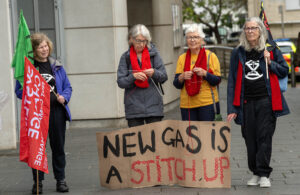Awareness of climate change is not enough to facilitate action
Awareness of climate change is not enough to move people to action, according to a new study published yesterday (March 9) in the journal Energy & Environment.
In 2015, nations agreed to limit climate change to below two degrees celsius.
However, according to researchers from the International Institute for Applied Systems Analysis (IIASA), in order to achieve this, current national targets must be significantly strengthened.
The researchers’ highlight that this requires support from the public for policy change, which includes acceptance of an energy transition but also willingness to use and pay for renewable energy sources.
To understand how peoples worldviews affect their actions, ISSA researchers Nadjeda Komendantova and Sonata Neumueller used social science methodologies including surveys and interviews of people in three regions of Austria.
Austria is a country with a high level of awareness on climate change, therefore the researchers were not surprised to find support for climate change mitigation efforts.
However, they were surprised to find conflicting opinions about whose responsibility it is to implement these mitigation efforts.
These differences meant that although people agreed on the fact climate change is a problem, they differed on what policies should be implemented and their willingness to change their own behaviour.
According to the authors, understanding these differences could help policymakers to develop compromise solutions that reflect the different worldviews.
Nadjeda Komendantova said: ‘People have different ways of looking at the world, and these views influence their perceptions of risks, benefits and costs of various policy interventions and shape how people act.
‘Cultural theory says that there are four major worldviews and discourses: hierarchical, egalitarian, individualistic, or anarchical.
‘For example, representatives of the hierarchical views would prefer the government taking responsibility for the energy transition.
‘The egalitarian would say that everybody should be responsible for energy transition with the major arguments of fair and equal distribution of risks and responsibilities.
‘The representatives of individual discourse would say that it is a matter of personal responsibility and that such things as technology, innovation, and compensation are important.’
Photo Credit – Pixabay















